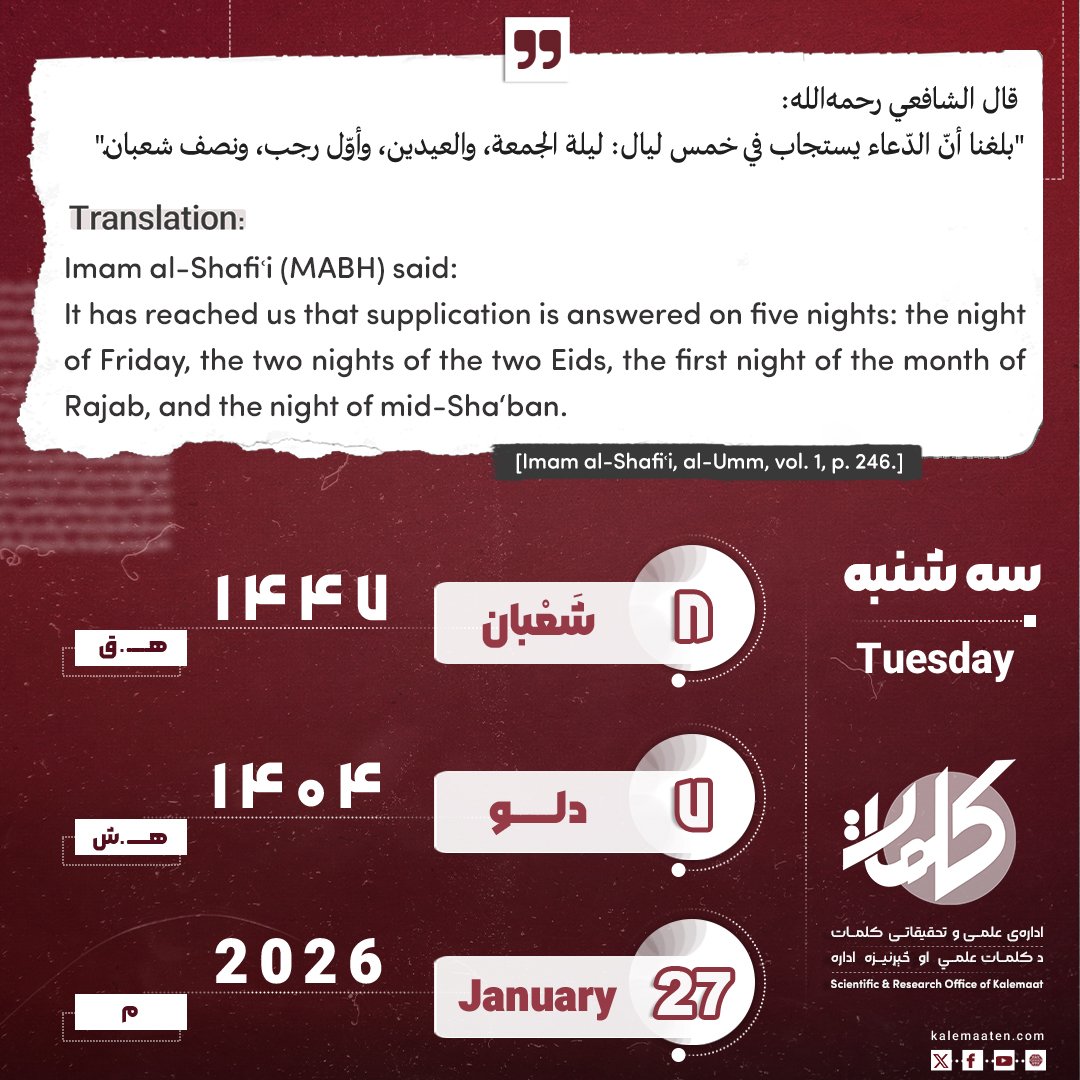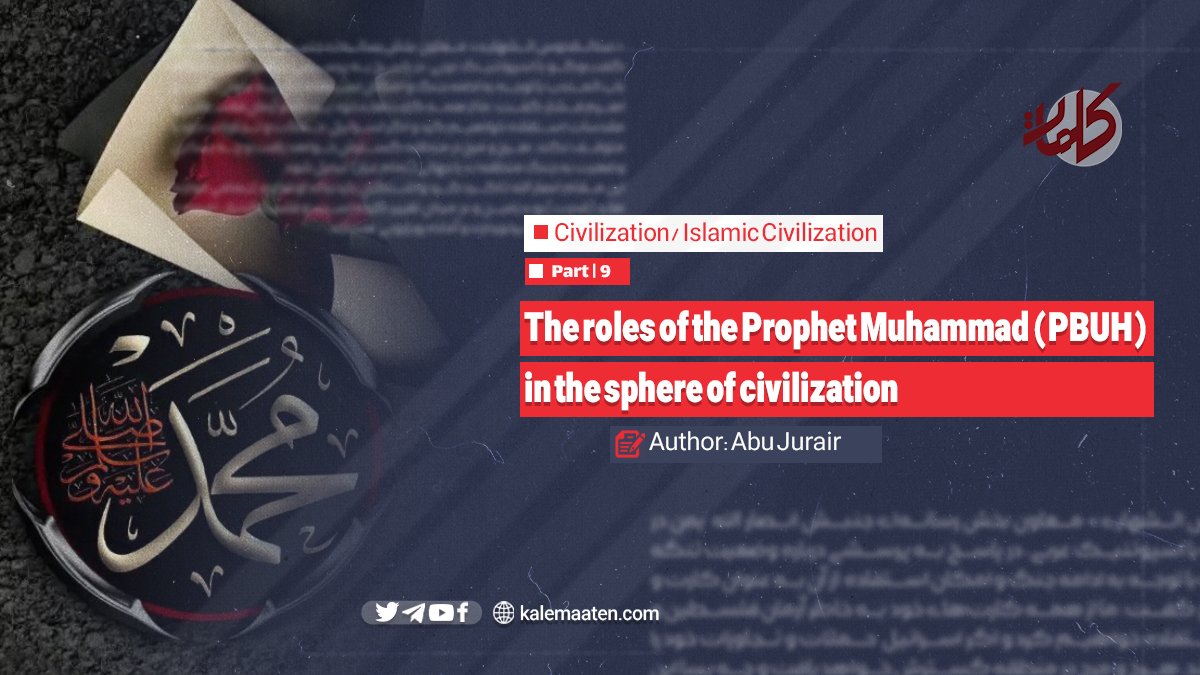Author: Abu Juriar
The Roles of the Prophet Mohammad, peace be upon him, in the Sphere of Civilization (Part 9)
D: The Prophet of Islam, Peace Be Upon Him, and Creating a Spirit of Cooperation
In the subsequent steps, the Holy Prophet (peace be upon him) revived the spirit of cooperation in this new society.
Cooperation in good and worthy affairs is one of the affirmations and commands of the Holy Quran: «وَ تَعَاوَنُواْ عَلَى الْبِرِّ وَالتَّقْوَى وَلاَ تَعَاوَنُواْ عَلَى الإِثْمِ وَالْعُدْوَانِ»; Translation: “And (always) cooperate in the way of goodness and piety! And (never) cooperate in the way of sin and transgression!”
What is mentioned in the verse regarding cooperation is a general principle that encompasses all social, legal, moral, and political issues. According to this principle, Muslims are obliged to cooperate in good deeds. Conversely, cooperation in false goals and wrongful actions, as well as cruelty and oppression, is absolutely forbidden, even if the perpetrator is a close friend or relative.
One of the first actions of the Holy Prophet of Islam, peace be upon him, after migrating to Madinah, was to build a mosque. The warm welcome that the majority of the people of Madinah gave to the Prophet motivated him, peace be upon him, to establish a public center for Muslims known as the “Mosque,” where educational, political, and judicial activities could take place. When the Messenger of Allah, peace be upon him, arrived, his camel knelt down at the site, and a price of ten dinars was paid for the construction of the mosque. All the Muslims participated in building it and providing materials. Even the Messenger of Allah, peace be upon him, would carry stones from the surrounding area like the other Muslims. Usayd ibn Hudayr (may Allah be pleased with him) went forward and said: O Messenger of Allah Please let me take. Hazrat said, “Go get another stone.”
The principle of consultation is also a key factor in fostering the spirit of cooperation. In the Holy Quran, the matter of consultation is emphasized in several verses, with one of the most significant being Surah Al-Shura, which highlights consultation as a vital issue along with duties that are encouraged and emphasized. It is mentioned in conjunction with “God’s response,” “prayer,” and “almsgiving”: «وَالَّذِينَ يَجْتَنِبُونَ كَبَائِرَ الْإِثْمِ وَالْفَوَاحِشَ وَإِذَا مَا غَضِبُوا هُمْ يَغْفِرُونَ وَالَّذِينَ اسْتَجَابُوا لِرَبِّهِمْ وَأَقَامُوا الصَّلَاةَ وَأَمْرُهُمْ شُورَى بَيْنَهُمْ وَمِمَّا رَزَقْنَاهُمْ يُنفِقُونَ». Translation: “And those who avoid major sins and indecencies, and whenever they are angered, they forgive. And those who respond to the call of their Lord, establish prayer, and their affairs are [determined by] consultation among themselves, and from what We have provided them, they spend.”
In verse 159 of Surah Al-Imran, after commanding general amnesty, the Prophet instructed Muslims to consult with one another in matters concerning their character, intellectual development, and spiritual life, emphasizing the importance of seeking their opinions. The term “order” here applies to all individual and social matters, including political, economic, cultural, and defense issues.
Despite divine revelation, the Holy Prophet, peace be upon him, possessed such a strong understanding that he did not solely rely on advice. His goal was twofold: to instill in Muslims the importance of consultation as part of their fundamental life decisions and to cultivate critical thinking skills among them. He held consultation meetings for public affairs, particularly those involving the implementation of divine laws (not legislation), placing great importance on the opinions of experts and occasionally deferring his own opinion out of respect for theirs.
The Messenger of Allah, peace be upon him, consulted with his companions during the Battle of Badr regarding strategies, determining the subject of the battle and the treatment of prisoners of war. When expertise was required, he endorsed the opinion of Hubab ibn Mundhir and chose the place of battle accordingly.
– In the Battle of Uhud, the Prophet of Islam, peace be upon him, formed a council to discuss strategies for facing the Quraysh army, ultimately making decisions based on collective understanding and the majority opinion of the Companions, may God be pleased with them.
– Similarly, during the Battle of the Khandaq, the Prophet consulted and made strategic decisions to confront the large polytheist army.
– He engaged in consultations regarding the Banu Qurayza and Banu Nadir, navigating issues related to the Jewish tribes of Medina.
– In the situation of Hudaybiyyah, after the polytheists halted the pilgrimage caravan of Muslims to Makkah, the Messenger of God, peace be upon him, gathered his companions for a discussion.
– During the Ta’if campaign, he sought advice regarding continuing the siege.
– In the Battle of Tabuk, he consulted his companions as well.
During the conquest of Makkah, upon hearing that Abu Sufyan was approaching the camp, he deliberated with his companions.
In all of these consultations, the Holy Prophet, peace be upon him, endeavored to foster a spirit of solidarity, cooperation, and collaboration. He viewed a society organized solely by individual opinions as lifeless and unworthy of survival.
A narration from the Holy Prophet of Islam, peace be upon him, clearly articulates the principle of cooperation:
عَنْ أَبِي هُرَيْرَةَ رضياللهعنه عَنْ النَّبِيِّ -صلىاللهعليهسلم- قَالَ: “مَنْ نَفَّسَ عَنْ مُؤْمِنٍ كُرْبَةً مِنْ كُرَبِ الدُّنْيَا نَفَّسَ اللَّهُ عَنْهُ كُرْبَةً مِنْ كُرَبِ يَوْمِ الْقِيَامَةِ، وَمَنْ يَسَّرَ عَلَى مُعْسِرٍ، يَسَّرَ اللَّهُ عَلَيْهِ فِي الدُّنْيَا وَالْآخِرَةِ، وَمَنْ سَتَرَ مُسْلِما سَتَرَهُ اللهُ فِي الدُّنْيَا وَالْآخِرَةِ، وَأَللَّهُ فِي عَوْنِ الْعَبْدِ مَا كَانَ الْعَبْدُ فِي عَوْنِ أَخِيهِ، وَمَنْ سَلَكَ طَرِيقًا يَلْتَمِسُ فِيهِ عِلْمًا سَهَّلَ اللَّهُ لَهُ بِهِ طَرِيقًا إلَى الْجَنَّةِ، وَمَا اجْتَمَعَ قَوْمٌ فِي بَيْتٍ مِنْ بُيُوتِ اللَّهِ يَتْلُونَ كِتَابَ اللَّهِ، وَيَتَدَارَسُونَهُ فِيمَا بَيْنَهُمْ؛ إلَّا نَزَلَتْ عَلَيْهِمْ السَّكِينَةُ، وَغَشِيَتْهُمْ الرَّحْمَةُ، وَذَكَرَهُمْ اللَّهُ فِيمَنْ عِنْدَهُ، وَمَنْ أَبَطْأَ بِهِ عَمَلُهُ لَمْ يُسْرِعْ بِهِ نَسَبُهُ”
Translation: “It is narrated from Abu Huraira, may Allah be pleased with him, that the Messenger of Allah, peace be upon him, said: Whoever relieves a believer’s distress in this world, Allah will relieve them of a distress on the Day of Judgment. Whoever brings ease to someone in difficulty, Allah will make things easy for them in this life and the next. Whoever conceals the fault of a Muslim, Allah will conceal their faults in this world and the next. Allah helps the servant as long as the servant is helping their brother. Whoever sets out on a path to seek knowledge, Allah will make their path to Paradise easy. A group does not gather in a house from the houses of Allah, reciting the Book of Allah and studying it among themselves, except that tranquility descends upon them, mercy envelops them, and Allah remembers them among those who are with Him. And whoever’s deeds are slow, his lineage will not hasten him.”



